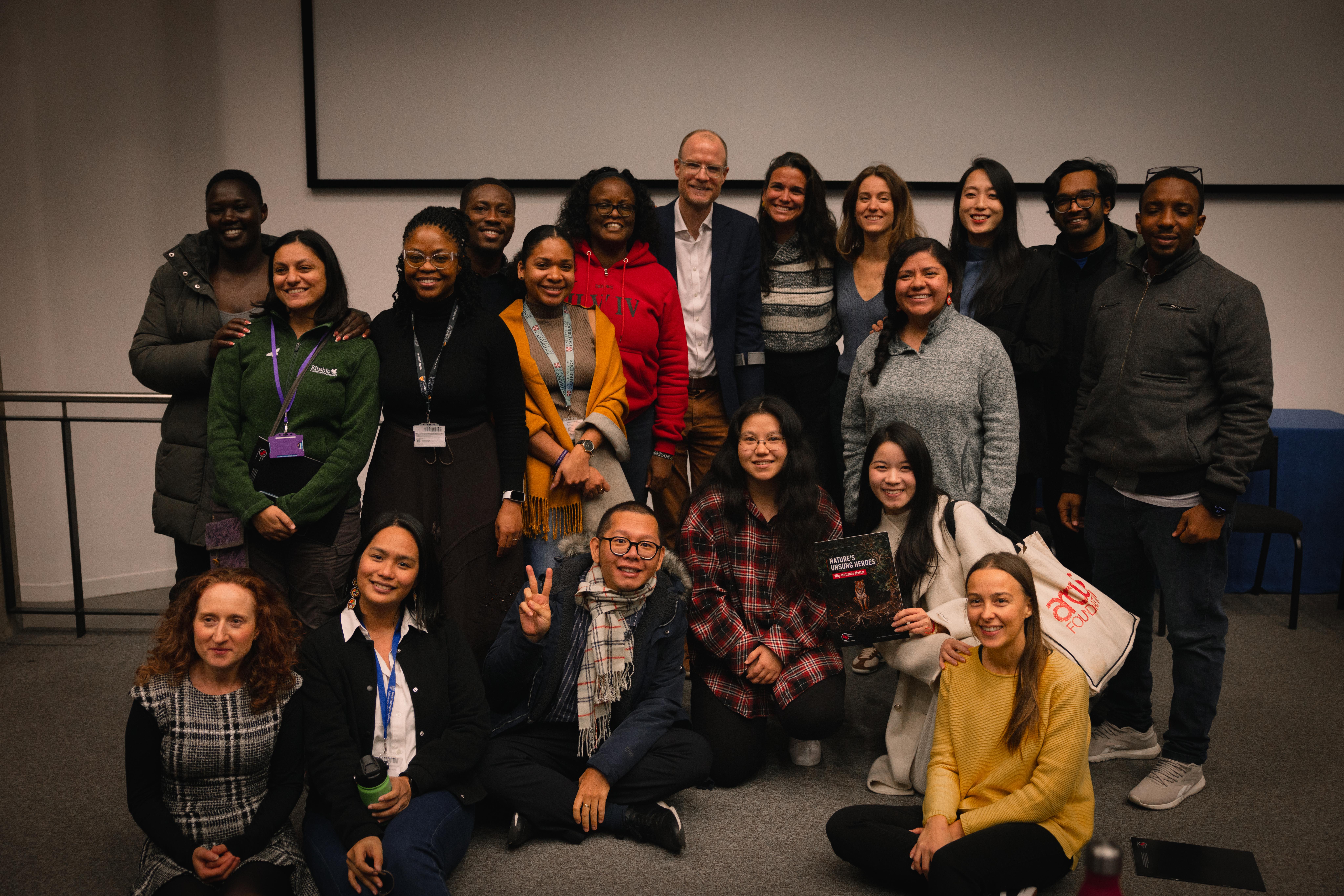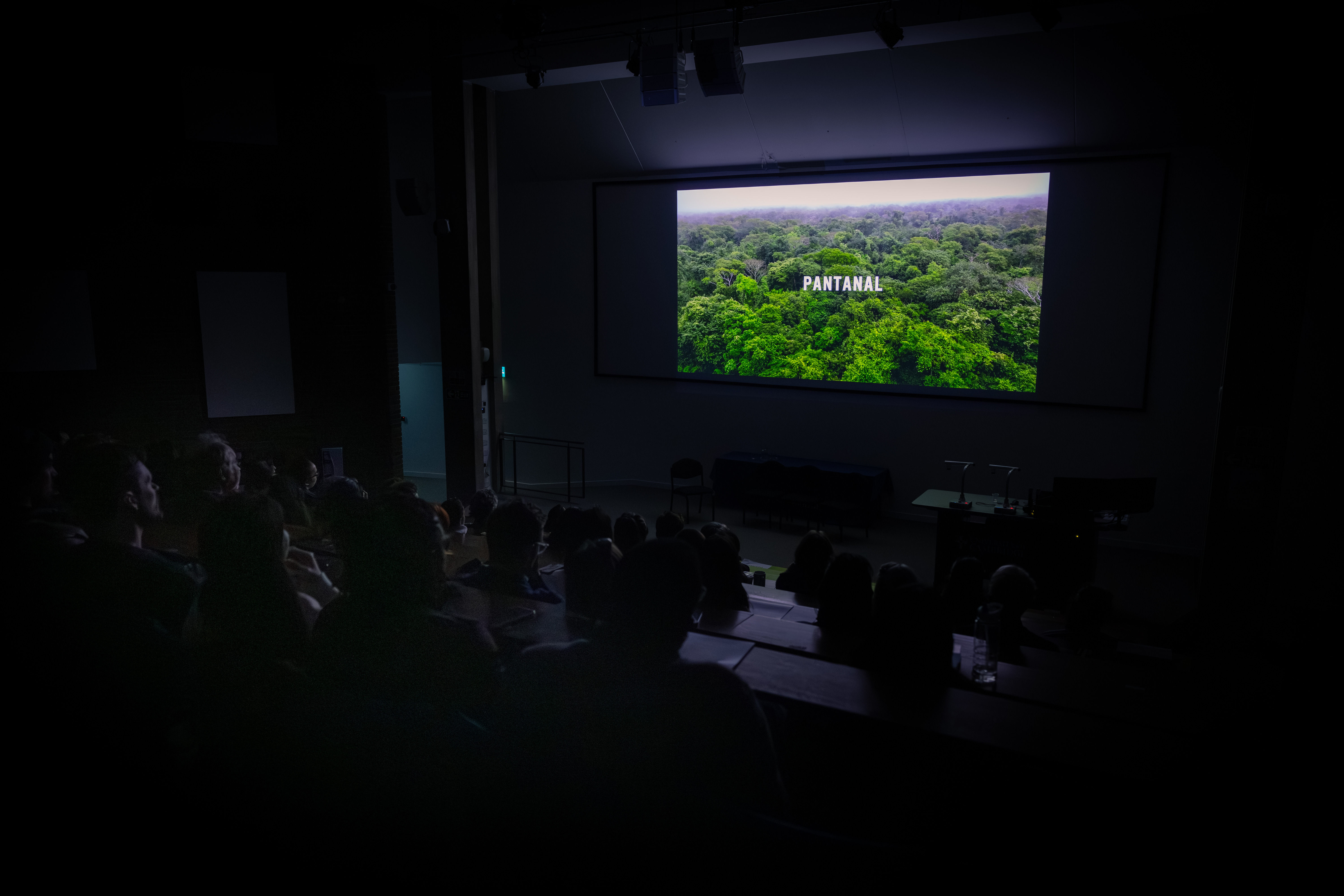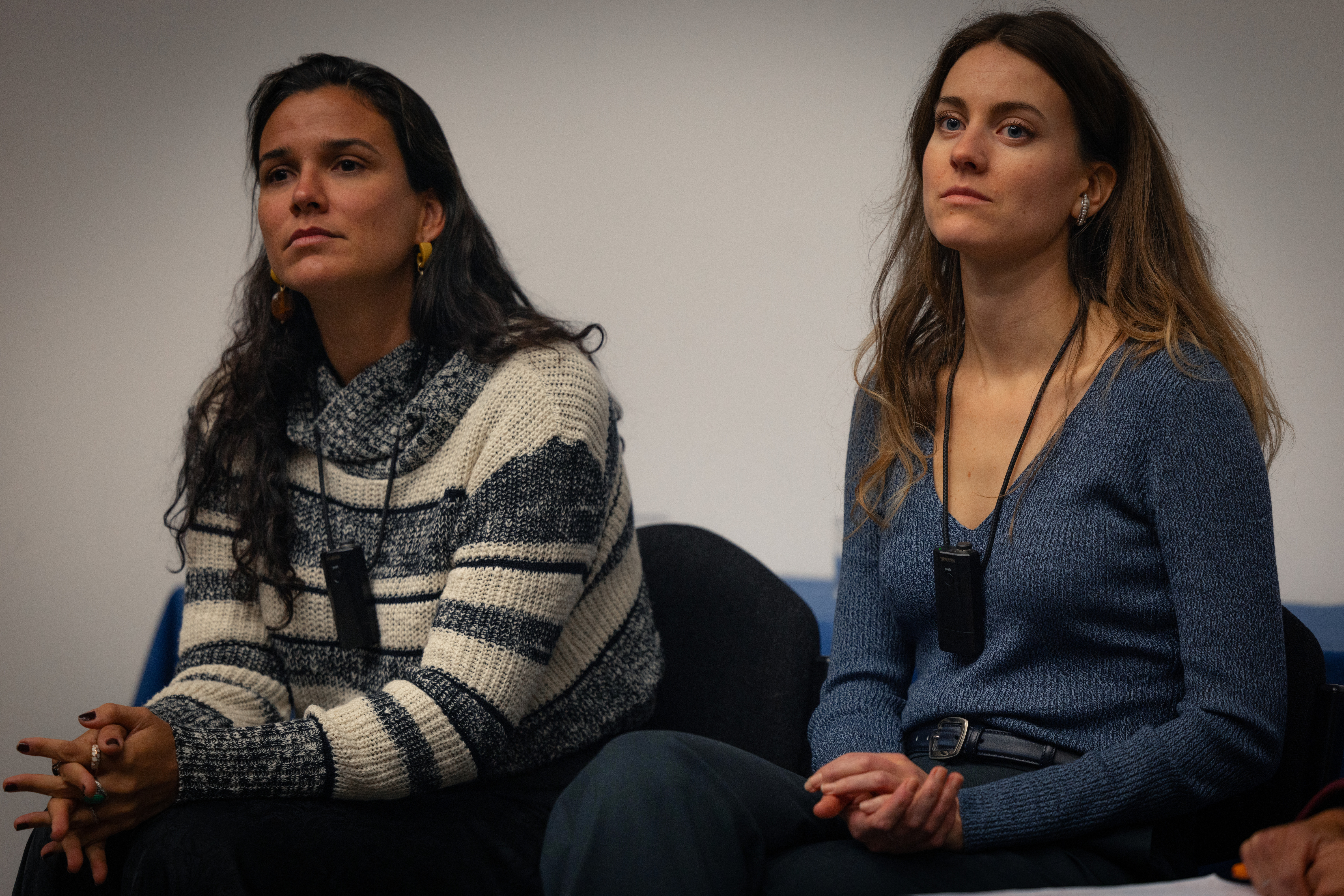
Submitted by Albina Mamedova on Mon, 03/02/2025 - 14:17
The University of Cambridge's Babbage Lecture Theatre recently hosted the European premiere of 'Pantanal', a powerful documentary highlighting South America's largest tropical wetland. Produced by the Environmental Justice Foundation (EJF), the film features Cambridge alumna Luciana Leite, who leads EJF's work in Brazil.
The documentary weaves together perspectives from scientists, Indigenous leaders and local communities, whilst capturing the region's extraordinary biodiversity. It examines pressing challenges, including the climate crisis, intensifying agriculture, and transformation of the Cerrado, which are disrupting the wetland's vital water cycle.
Leite's involvement extends beyond the film through her leadership of the Conservation Education in the Brazilian Pantanal project, funded by the Sansom Conservation Leadership Alumni (SCLA) Fund. This initiative promoted knowledge and care for nature among local communities, demonstrating the tangible impact of the Conservation Leadership programme's alumni network.
The evening featured a panel discussion with Joyce Brandão, a Cambridge researcher studying Brazilian supply chains, film director Sofija Korf, and Leite herself. They explored the documentary's development, its broader conservation context, and the role of education in protecting the Pantanal.
Professor Chris Sandbrook, Director of the MPhil in Conservation Leadership, noted, "While this film reminds us of the serious challenges faced by the natural world, it is also an inspiring demonstration of what dedicated and talented conservation leaders can achieve."
Current student Sakib reflected on the screening: "It was touching and brilliant journalistic work. I could relate to the frustrations, anxiety and hope conservationists feel, no matter which part of the world they are from."
The documentary balances stark challenges with stories of hope, illustrating how targeted conservation leadership and community engagement can drive positive change in one of the world's most remarkable ecosystems.


